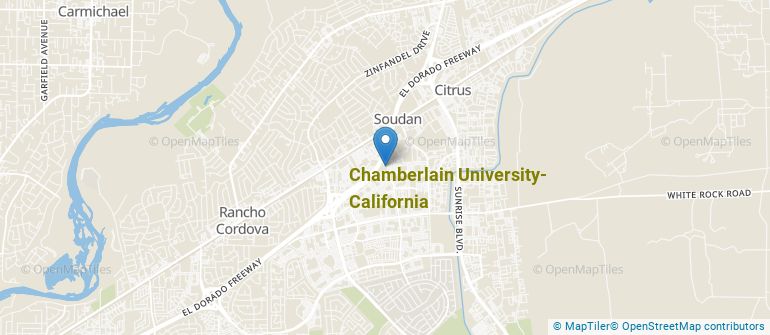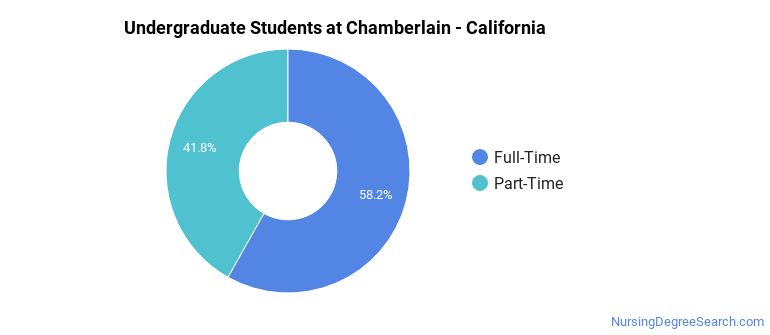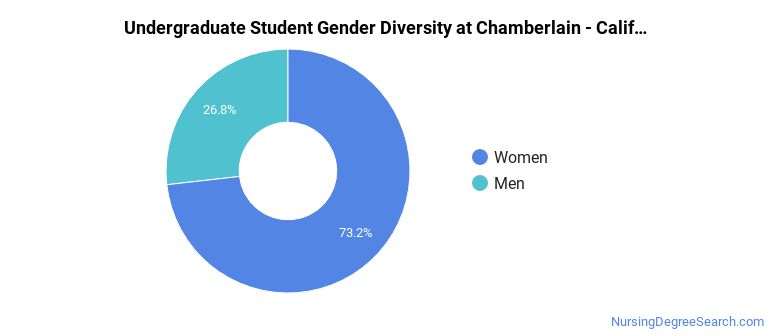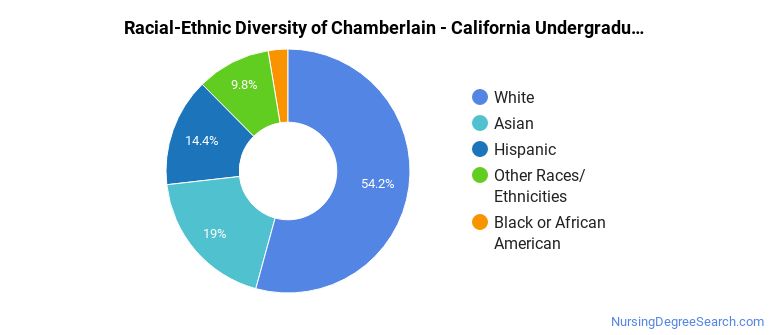Chamberlain University - California Nursing Programs
Located in Rancho Cordova, California, Chamberlain University - California is a private for-profit institution. Rancho Cordova is a great location for students who prefer city over country life.
Where Is Chamberlain University - California?

Contact details for Chamberlain - California are given below.
| Contact Details | |
|---|---|
| Address: | 10971 Sun Center, Rancho Cordova, CA 95670 |
| Phone: | 916-330-3410 |
| Website: | www.chamberlain.edu |
How Do I Get Into Chamberlain - California?
You can apply to Chamberlain - California online at: https://community.chamberlain.edu/s/application
Admission Requirements for Chamberlain - California
| Submission | Required? |
|---|---|
| High School GPA | 1 |
| High School Rank | 3 |
| High School Transcript | 1 |
| College Prep Program | 3 |
| Recommendations | 3 |
| SAT or ACT Scores | 5 |
| TOEFL | 5 |
Can I Afford Chamberlain University - California?
Student Loan Debt
While almost two-thirds of students nationwide take out loans to pay for college, the percentage may be quite different for the school you plan on attending. At Chamberlain - California, approximately 100% of students took out student loans averaging $13,196 a year. That adds up to $52,784 over four years for those students.
Chamberlain University - California Undergraduate Student Diversity

Gender Diversity
Of the 153 full-time undergraduates at Chamberlain - California, 27% are male and 73% are female.

Racial-Ethnic Diversity
The racial-ethnic breakdown of Chamberlain University - California students is as follows.

| Race/Ethnicity | Number of Grads |
|---|---|
| Asian | 29 |
| Black or African American | 4 |
| Hispanic or Latino | 22 |
| White | 83 |
| International Students | 0 |
| Other Races/Ethnicities | 15 |
Chamberlain University - California Nursing Concentrations
The table below shows the number of awards for each concentration.
| Major | Bachelor’s | TOTAL |
|---|---|---|
| Registered Nursing | 151 | 151 |
| TOTAL | 151 | 151 |
References
*The racial-ethnic minorities count is calculated by taking the total number of students and subtracting white students, international students, and students whose race/ethnicity was unknown. This number is then divided by the total number of students at the school to obtain the racial-ethnic minorities percentage.
More about our data sources and methodologies.
